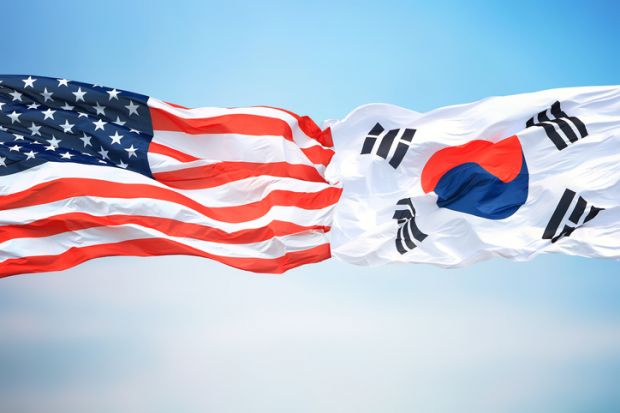Recent data from the US confirms that, despite all the negativity during the Trump/pandemic era, the US remains the destination of choice for most international students. The country educated more than a million of them in 2022-23, according to the Open Doors report, an increase of 11.5 per cent on the 2021-22 academic year.
The attraction of the US certainly continues to be felt in South Korea, despite ongoing shifts in the country’s socio-economic landscape. The number of South Korean students in the US rose by 7.6 per cent in 2022-23, reaching nearly 44,000, following a 20.7 per cent drop in the pandemic year of 2020-21.
Overall, there has been a steep decline in the number of South Koreans in overseas higher education institutions over the past 15 years, from 262,000 in 2011, the peak year, to 123,000 in 2023. Yet Western countries have recently been rising in popularity, following a fall as other destinations, notably China, began to capture a more substantial share. Tensions with China in 2017-18 over South Korea’s adoption of a US missile defence system eroded China’s appeal to South Korean students, and the anglophone nations’ current market share, 55 per cent, is now one percentage point higher than it was in 2008.
The US saw its own market share fluctuate from 28 per cent in 2008 and 25 per cent in 2017 to 33 per cent in 2023, even as overall numbers of Koreans studying in the US declined by 35 per cent between 2008 and 2023 (and by 47 per cent since the 2010 peak). That is because, with the exception of Canada (which recorded a 6 per cent rise), falls elsewhere were larger: 71 per cent in the UK, 45 per cent in Australia and 86 per cent in New Zealand.
This trend is even more pronounced between 2019 and 2023, which encompass the period before and after the pandemic. The US experienced a fall of 25 per cent during this period, but that is small compared with Canada’s 30 per cent, the UK’s 58 per cent, Australia’s 50 per cent and New Zealand’s 79 per cent.
The reason is historical. Following liberation from Japanese colonial rule, largely by US forces, South Korean society has been significantly influenced by the US. Many of the existing elite were educated there, and US credentials and experiences, especially from top-ranked institutions, are still held in high esteem in Korea.
Nevertheless, Korean students and their parents still have some concerns about going to the US. These include the safety implications of widespread drug use in major cities, soaring living costs, and potential policy changes regarding international students following the upcoming presidential election. Additionally, last year’s Supreme Court decision on affirmative action sparked worries about how it might affect international recruitment.
But other anglophone countries that want to capitalise on such concerns to increase their Korean market share will not find it easy. High-quality English language education in anglophone countries is seen as offering students a competitive edge in the global arena, but the renown of US institutions gives them a head start.
To compete, other nations must ensure that the academic credentials they offer really do translate into enhanced job prospects back in South Korea by focusing on quality and brand-building. Second, clear pathways for immigration and work opportunities in the host country are crucial, including post-study work rights, as it is this professional experience as much as the overseas degree that Korean employers value. Last, it is essential to offer unique educational experiences that stand apart from those offered by elite institutions in Korea, possibly through specialised programmes or research opportunities.
The success of these strategies hinges on understanding the specific educational aspirations and cultural context of South Korean students. Given the historical ties between the two countries, that will probably always be easier for US institutions than for others in the anglophone world.
Kyuseok Kim (Mick) is a PhD student at Korea University, specialising in higher education administration. He has more than 13 years of experience in international higher education, having held positions at both a research university and a US branch campus in South Korea.
Register to continue
Why register?
- Registration is free and only takes a moment
- Once registered, you can read 3 articles a month
- Sign up for our newsletter
Subscribe
Or subscribe for unlimited access to:
- Unlimited access to news, views, insights & reviews
- Digital editions
- Digital access to THE’s university and college rankings analysis
Already registered or a current subscriber? Login








